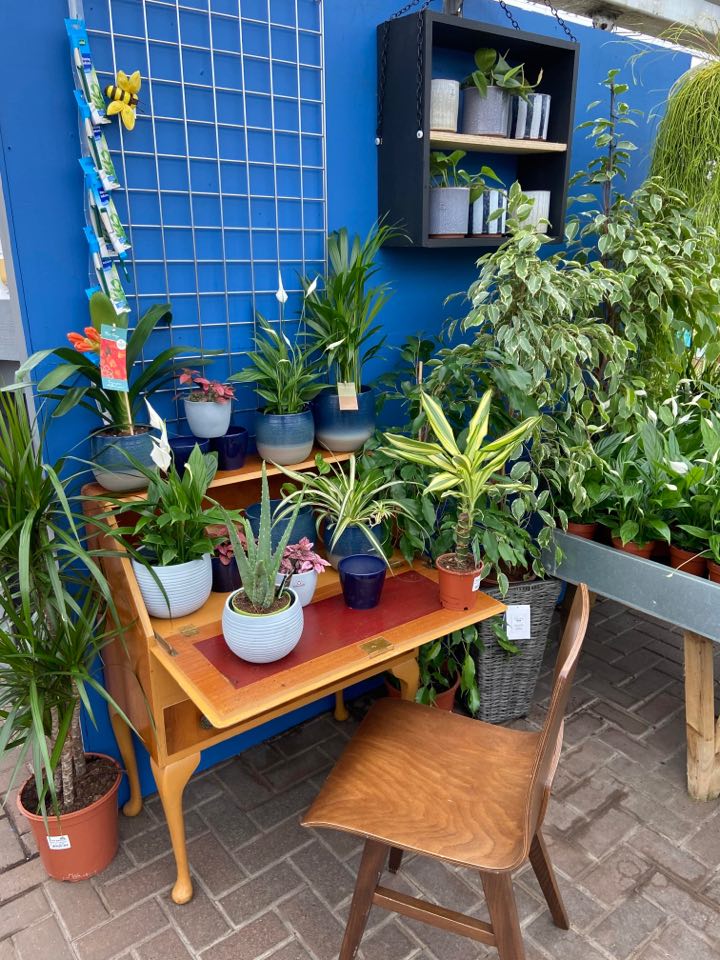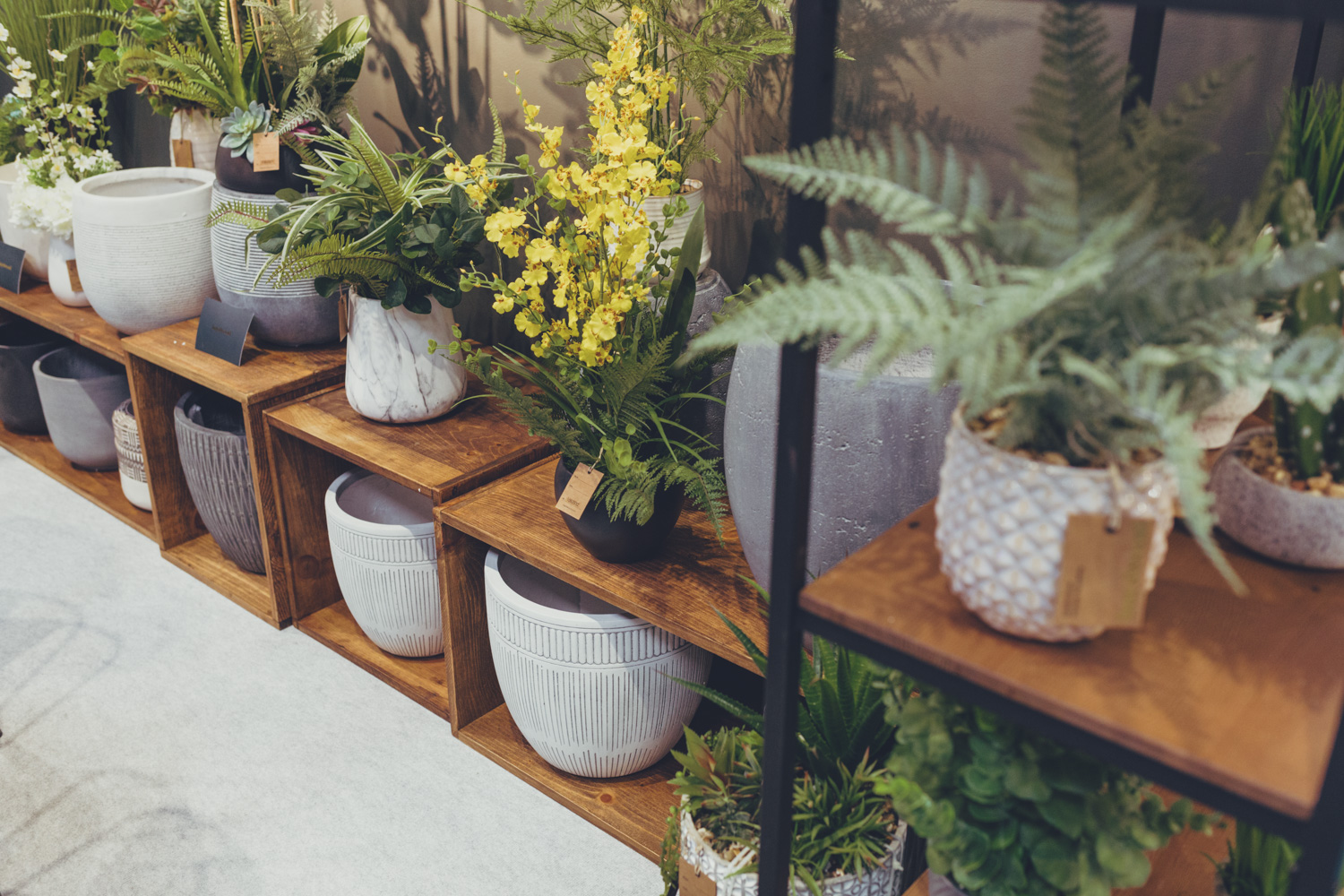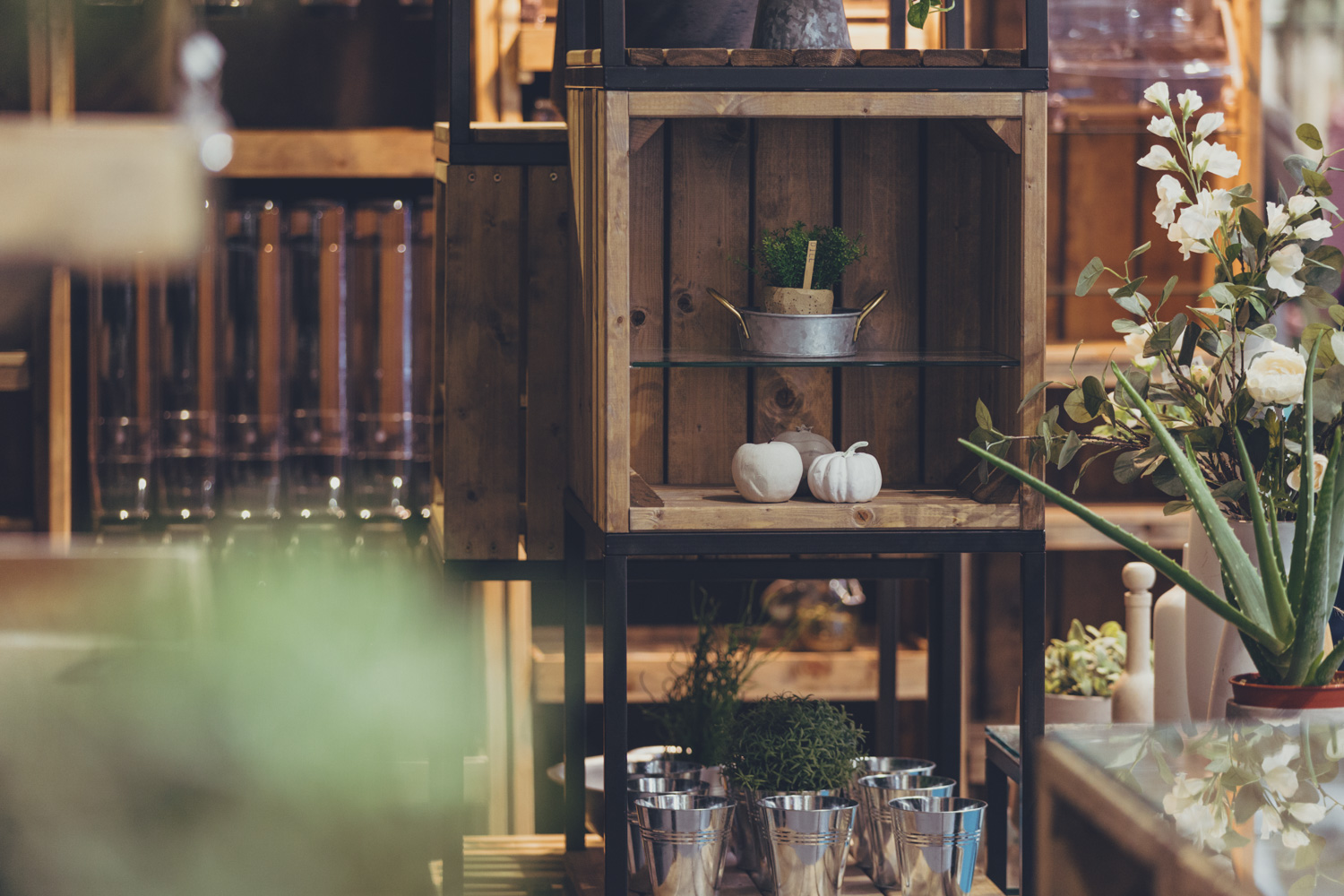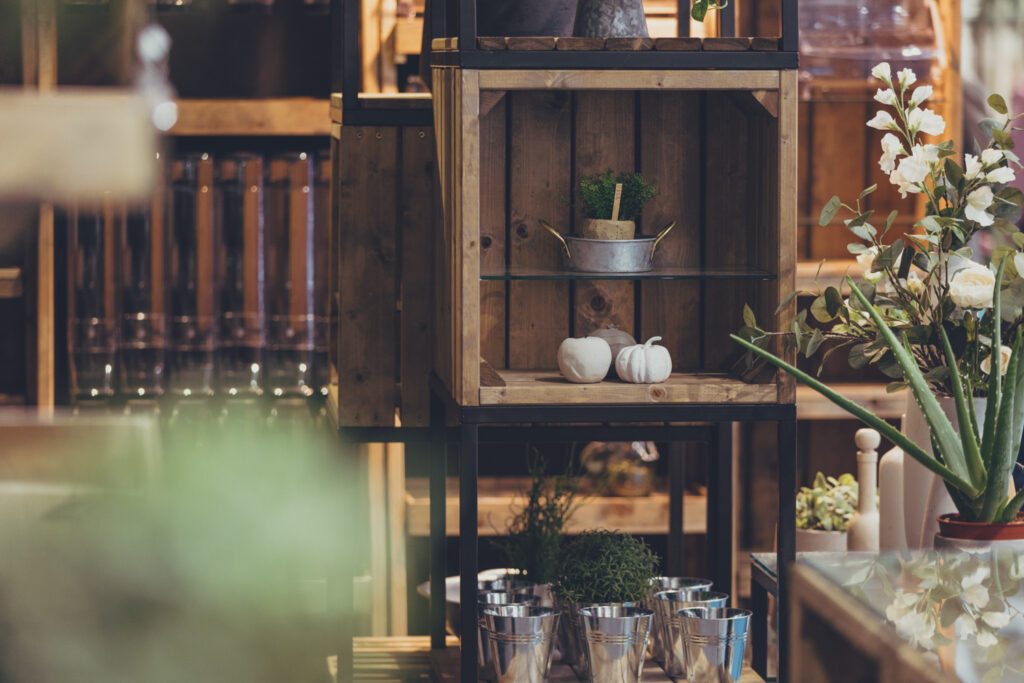 Houseplant sales have been on an upward curve for some time now but, for anyone wondering if the trend has hit its peak, think again because Covid has taken the demand for greenery in the home up another notch. Lockdown has seen the nation engage with plants and gardening like never before, with retailers often struggling to keep up with demand and a new army of plant enthusiasts stepping up their spend. UK houseplant sales are forecast to top £4billion this year and the category is enticing in a wealth of younger consumers, for whom, becoming a ‘plant parent’ or impressing your followers on social media is all the rage. So, what’s behind this upswing in sales? The Glee team find out more.
Houseplant sales have been on an upward curve for some time now but, for anyone wondering if the trend has hit its peak, think again because Covid has taken the demand for greenery in the home up another notch. Lockdown has seen the nation engage with plants and gardening like never before, with retailers often struggling to keep up with demand and a new army of plant enthusiasts stepping up their spend. UK houseplant sales are forecast to top £4billion this year and the category is enticing in a wealth of younger consumers, for whom, becoming a ‘plant parent’ or impressing your followers on social media is all the rage. So, what’s behind this upswing in sales? The Glee team find out more.
What’s behind the growth?
As lockdowns and stay-at-home orders dragged on for months, Brits turned their attention to improving the space around them. Interior décor trends, including biophilic design, offered inspiration by showcasing the beauty of plants in the home, whilst the national media promoted the benefits gardening has on health and wellbeing, as the public struggled with feelings of isolation and uncertainty. Makeshift home offices were upgraded to dedicated workspaces and adorned with air-purifying foliage, while millennials and generation Z took pride in becoming a ‘plant parent’ and snapped photos of their urban jungle to share on social media. All of this has seen sales of houseplants soar over the past year.
The Horticultural Trades Association (HTA) reveals that houseplant sales for the 12 months ended March 2021 were up 114% on the same period in 2020, which had already recorded 63% growth on the previous year.
Garden Centre Association (GCA) members have also seen notable rises. GCA chief executive Iain Wylie explains: “Houseplants are just going up and up in popularity. In 2019 the value of houseplant sales didn’t increase but represented 2.6% of total sales; an increase from 2.3% the previous year. Despite centres being closed for a number of weeks last spring (with no adjustment made for the period of closure and almost zero sales), sales value and percentage of the total garden centre sales increased significantly. This year, the trend is continuing and the year-to-date figure to the end of May reveals that houseplants represent 3.87% of total sales.”
All of this spells good news for retailers and suppliers alike. One such success story is that of Double H nursery in New Milton, Hampshire. The orchid grower managed to create 42 jobs during lockdown with the launch of a new online houseplant business, which saved the company from financial ruin. Before the launch of the online shop, Double H face the prospect of having to put 50,000 orchids on the compost heap. However, within five weeks of launching Love Orchids, it had sold tens of thousands of plant direct to customers and, a year on, the online business boasts a revenue of more than half a million.

Cowell’s Garden Centre in Woolsington, near Newcastle has had huge success with houseplants in recent years and the pandemic has only served to drive further growth and interest in the category. “Houseplant sales have been phenomenal,” says Horticultural Director, Martin Cowell. “We have increased sales in the category significantly. Four years ago houseplants were just 3% of our turnover; now they account for 11%. We have seen a 320% jump in turnover in that category! We have also taken on two new members of staff in houseplants and have doubled the size of the department.”
And, it’s not just plants that have kept the tills ringing and the profit line healthy. Martin says anything associated with houseplants has been selling extremely well – from pots and sundries, to composts. “And, there are good margins on it all as well,” he adds. “Four years ago houseplants represented a £110,000 business for us, and now it’s worth £460,000!”
Key Trends
As with everything, trends evolve and change, so what’s en vogue in the world of houseplants and how can retailers shape their offer to capitalise on these opportunities?
Indoor and outdoor plant supplier, Javado saw a huge spike in demand in 2020 and set records, shipping the highest volume of trade ever in one week. The Dutch firm keeps a close eye on consumer behaviour and changing fashions in plants to make sure it stays ahead of the curve. UK Sales Manager, James Woodham believes, after a successful year of growing, people are now willing to spend more and want larger varieties. “We’ve seen a trend towards bigger plants,” he says. “Twelve months ago, people were opting for smaller plants for shelves or to have hanging up. Now, they want bigger specimens. That’s been a noticeable change and, in turn, has become a bigger and more important category for us.”
He continues: “It could be that people are furnishing their new home office spaces rather than just having a small pot on their desk or it may be that they had success with those small plants last year and are looking to invest more now that their confidence has grown. Consumer spend had been cautious previously but now people are getting braver and spending between £40 and £50 on an individual plant.”
In terms of aesthetics, foliage is still the preferred choice over flowers, with Brits still loving the look of lush green jungles and, for those who are taking a step up from entry-level houseplants, the more unusual the plant, the better. “Foliage colour is really driving it,” says James Woodham. “Whether it’s pinks or new variegations – textures and patterns – if it’s unusual, people will snap it up.”

The demand for houseplants is still so high on certain favourites that garden centres are struggling to keep them in stock, with some varieties proving ever-elusive. Perrywood Junior Plant Buyer, Zoe Willis explains: “Anything that’s a bit unusual is going really well. Calatheas have been strong this year and they’re hard to buy; you have to bag them as soon as they land! I’ve not been able to get Ceropegia (string of hearts) and even Monstera are hard to get. The demand is crazy; as soon as it’s listed online, it’s gone. Everybody wants something to show off on Instagram or they want something they’ve seen on Instagram. We’ve also noticed that they seem to want things that are easy to care for. Clivia has been really popular this year, helped by new varieties brought over by our supplier Javado.”
Martin Cowell adds: “Alocasia Frydek has been popular, Philodendron Cobra has been a favourite – in fact, all Philodendrons are doing well – as well as things like string of hearts and string of pearls; all unusual plants. If we create a bit if a hype about it online, people pick up on that. Aside from popular plant varieties, some other trends that we’ve observed are for pot covers, and also people grouping their houseplants together, rather than growing as single specimens, so they create a mini jungle or micro-climate.”
Compulsive Collectors
With a new army of passionate plant people celebrating their growing successes and happily filling every available space in their homes with greenery, it’s probably not a huge surprise to learn that houseplants are becoming more than just a hobby for some, as they become self-professed collectors, accumulating the latest ‘it’ plants and keeping up with the Joneses on social media. Javado’s James Woodham explains: “We found that customers last year might have bought a Calathea, for example, and there is now demand for the next best thing. They want the next colour or the next one in the series. There is a ‘collector-ism’ to it.”
Perrywood’s Zoe Willis says: “When you find a plant that really works in an area, you want every single one. You find some customers, for example, who want every kind of philodendron and they are willing to travel miles to get them.”
Not only are people willing to travel, they are also willing to pay serious money for the most unusual and sought-after specimen. Researchers from Homedit.com revealed that, earlier this year, a mint variegated Monstera Deliciosa sold in the UK on Ebay for £28,200, while a Philodendron Spiritus Sancti sold for £7,600.
Cowell’s Garden Centre has forged a successful business catering to some of these avid collectors and sourcing whatever weird and wonderful plants might best capture the imagination of their enthusiastic followers, offering click and collect or next-day delivery to doorsteps nationwide. Cowell’s online Collector’s Corner now boasts more than 900 members, where the garden centre team can let members know about new varieties coming in and give them “first dibs” before they go out for general release. “Sometimes people approach us asking for specific plants, other times we go to them and let them know what we have,” says Martin Cowell. “We do a lot of research and are looking on social media all the time to see what people are talking about. These customers know a lot more than most about caring for houseplants. This is their passion; they are spending hundreds. They also like to show on social media that they’ve got the plant. It’s like collecting shoes.”
Digital Drivers
Social media has proved a particularly powerful tool in the houseplant sector, especially given that the demographic of the consumers going gaga over greenery in the home tends to be more digitally-savvy. Social media is enabling retailers and suppliers to build excitement around products, communicate with customers and bring updates to their followers. It has also created a community for consumers where they can share tips and advice, whilst providing the perfect stage for houseplant fanatics to showcase their carefully-curated assortment to the rest of the world. A vast array of popular hashtags, such as #urbanjungle #houseplants, #houseplantsofinstagram #livingwithplants #plantparenthood, group millions of posts referencing houseplants together and allow fans to search for content most relevant to their interests. Retailers and suppliers tagging their posts using some of these hashtags, allow them to immediately tap into this and get their product or update in front of consumers they already know have a keen interest in the subject matter.
“Social media is a big driver of sales and has a huge influence,” says Javado’s James Woodham. “People also have a lot more leisure time and tend to turn to social media more out of boredom, so they are a captive audience… The power of social media is telling them what they want to buy.”
Perrywood Garden Centre operates a dedicated Instagram for its houseplant division and employs a smart social media strategy to make sure its posts have maximum effect in store, whilst remaining engaging for its followers. “We feature things like ‘houseplant of the week’,” explains Zoe Willis. “The reaction to that is unbelievable. You do that on a Friday and, when you come back in on Monday, every single one of those plants will have gone. We photograph and film our deliveries, create some excitement, and tell customers what’s new. We did that with the Calathea White Fusion when it came in. That was £64 for a 12cm pot and it just flew out!”
Digital channels can also be used to create interest around lines that aren’t performing well and, if you can back that online dialogue up with an amazing in-store experience, you’re winning. “If something isn’t moving, the first thing we do is tell people on social about that product,” says Zoe. “We show them what they need to do with it, plant it up and offer inspiration. We get our team behind it. If a member of the team can get excited about it when talking to a customer, they can pass that passion on and secure a sale.”
Online retail skyrocketed during the pandemic, as people sought out the products they wanted, without having to leave the comfort of their own home. Even though garden centres were eventually able to re-open, some habits stick, plus the nature of houseplant collectors seeking out their dream specimen from anywhere in the UK, means houseplants have created opportunities for garden centres via other digital channels, including online trading and click and collect. “Houseplants now account for 80% of our online sales,” says Martin Cowell. “And, online is 10% of the business overall. We get a lot of orders on houseplants between midnight and 3am, so these customers are clearly night owls.”
What does the future hold?
Since the resurgence several years ago, the lust for houseplants has shown no signs of abating and those within the category seem fairly certain the nation’s love affair with indoor growing is going nowhere fast. Javado’s James Woodham says, confidently: “I think the trend for plants inside your home is here to stay. It’s not going anywhere! Healthy living, plants improving the quality of your home, gardening for wellbeing – it’s all here to stay.”
Perrywood Garden Centre agrees and has actually seen die-hard houseplant fans take their love of gardening into their outdoor spaces, creating further opportunities for the industry. Zoe says: “People who love houseplants are now looking at outdoor plants. In outdoor, I’ve noticed tropical plants are so popular right now. Sales of bananas are going through the roof. People want their outdoor spaces to look as lovely as their indoor ones. If they have an outdoor area or balcony, they want to try and grow things and create the same magic out there. You can only get so many plants in a house!”
She concludes: “There are still avenues to explore. So many people haven’t jumped on the trend yet but can still pick it up. People are giving cuttings to each other and sharing plants and information. It’s so good for mental health and it gets other people growing. It’s a good place to start and it’s about building confidence. If you can grow one thing, you can grow something else.”
Houseplants at Glee
With houseplant popularity showing no signs of abating, there is no question that many retailers will be visiting Glee to source new and exciting products to support their houseplant offering. From Glee’s Green Heart where plants take centre stage to sundries and accessories within Garden Care, Glee offer buyers a terrific opportunity to ignite their sales and provide customers with products that will keep them coming back time after time.
Look out for brands such as Javado, Floreac NV, Key Essentials, plus Ivyline, Woodlodge, Capi Europe and Yorkshire Flowerpots
Find out more
To keep up to date on the latest Glee (14th – 16th September, NEC Birmingham) news visit www.gleebirmingham.com. To enquire about exhibiting at Glee 2020 call +44 (0)203 3545 9752.
ENDS
Words: 2,429
For more information, interviews or images please contact:
Kimberley Hornby, Glee PR Team, Hornby Whitefoot PR
Tel: 07851 610573 Email: kimberley@hornbywhitefootpr.co.uk
Notes to editors:
You can follow Glee on Twitter at https://twitter.com/Glee_Birmingham
Like our Facebook page at https://www.facebook.com/Glee.Birmingham1
Please add Instagram account https://www.instagram.com/glee_birmingham/
Please add Pinterest account https://uk.pinterest.com/GleeBirmingham1/
About Hyve Group plc
Hyve Group plc is a next generation global events business whose purpose is to create unmissable events, where customers from all corners of the globe share extraordinary moments and shape industry innovation. Hyve Group plc was announced as the new brand name of ITE Group plc in September 2019, following its significant transformation under the Transformation and Growth (TAG) programme. Our vision is to create the world’s leading portfolio of content-driven, must-attend events delivering an outstanding experience and ROI for our customers.
Where business is personal, where meetings move markets and where today’s leaders inspire tomorrows.

